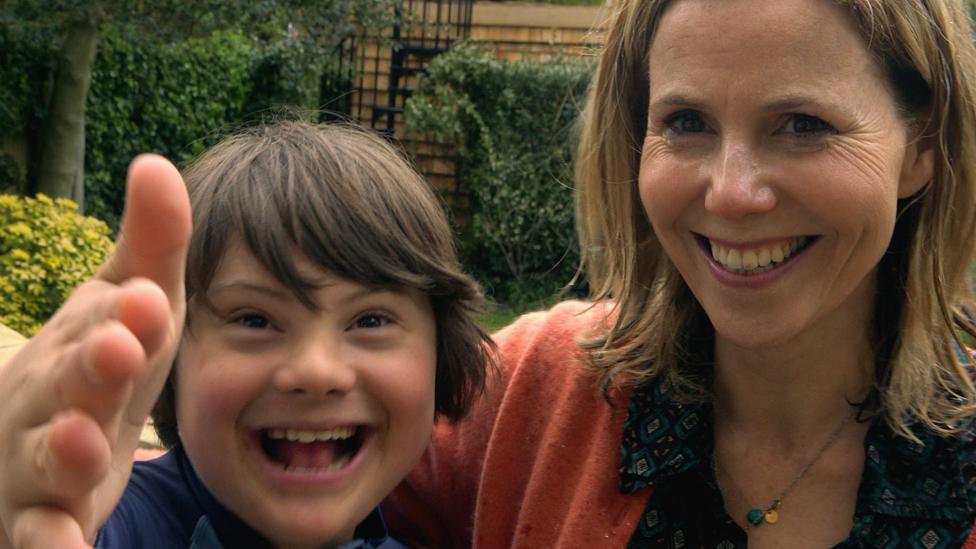Down's syndrome: Advice scrapped after criticism
- Published
Midwife told me "Down's test is for abortions"
A leaflet for pregnant women who opt for Down's syndrome screening has been scrapped after it was criticised for overly focusing on medical problems their baby could face.
The information was produced to accompany a non-invasive prenatal test (NIPT) for chromosomal conditions which was rolled out by NHS Wales in April.
Campaigners said pregnant women were being "pushed towards terminations".
The Welsh Government said parents were given information to make choices.
NIPT can safely screen for genetic conditions such as Down's syndrome, Edwards' syndrome and Patau's syndrome with more than 98% accuracy, external in the first three months of pregnancy.
But only an invasive amniocentesis, external test, which carries up to a 2% risk of miscarriage, can confirm a diagnosis.
If women are found to have a high chance of having a baby with one of the conditions, they are offered a NIPT and given a booklet which explains the condition.
However, in a letter to a campaigner Health Secretary Vaughan Gething admitted the initial booklets given to mothers having the test had to be replaced after the Nuffield Council on Bioethics said the information was "overly focused on the medical problems associated with the screened-for conditions", "lacking in important information about NIPT" and "difficult to navigate".
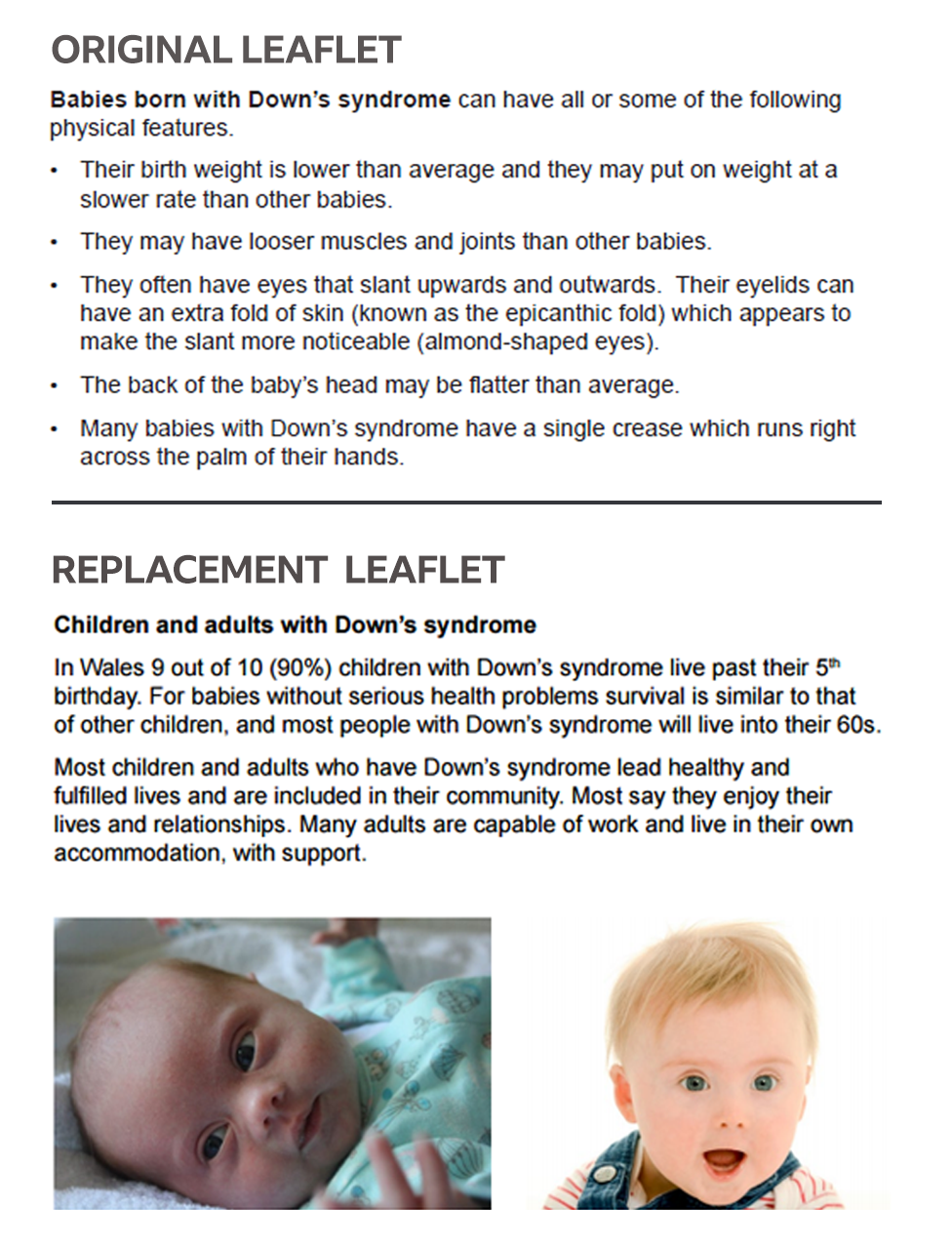
The replacement leaflet added more information about the social aspect of the condition after the first was criticised
The new leaflet has altered some information about medical problems such as heart conditions and cataracts.
It also states children with Down's syndrome "lead healthy and fulfilled lives" and added that many go on to work and live in their own accommodation.
Before its introduction, campaigners had argued tests would lead to more terminations, with evidence suggesting 90% of women terminate with a positive diagnosis, external of the condition.
Health Secretary Vaughan Gething says the test is safer for mothers and babies
'Punched in the guts'
Mother-of-two Leah has a sister with Down's syndrome.
Leah, who does not want to reveal her full name or where she lives, recently went for a dating scan and asked for the screening so she could be prepared if her baby had the condition, which it did not.
She claimed when she told the midwife she would not terminate the pregnancy if she was given a positive result the midwife told her "the purpose of the test is for terminations" and she should not be having the scan if she was not going to end her pregnancy in the event of a diagnosis.
"We came out of the consultation, my husband and I, literally as if we'd been punched in the guts. We were sat there with tears in our eyes looking at each other and we couldn't believe what we'd just heard," she said.
"It was just horrible. Really horrible."
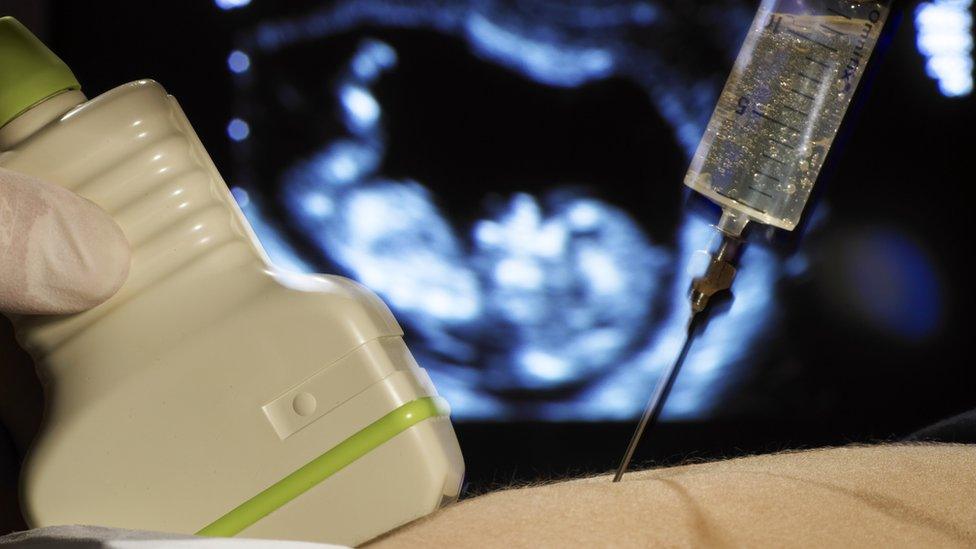
NIPT is more than 98% accurate, but an invasive test is still needed to confirm a Down's Syndrome diagnosis
A spokeswoman for the Welsh health board in question said it was "grateful that this issue has been brought to our attention" and it would work to "make sure all information offered to women is in keeping with standards, promotes choice and an unbiased approach".
It added midwives offer information on screening in line with the standards and policies set out by Antenatal Screening Wales.
Frances Jenkins, whose 10-year-old daughter Darcie has Down's syndrome, set up a support group for families in south Wales called T:21 Dragons shortly after she was born.
She said: "The support is not fair, it's totally biased towards termination.
"No parent to my knowledge has been offered to meet families that have successfully and happily brought a child with Down's syndrome into the world, they were only directed towards families that had already terminated.
"It has to be fair, unbiased information. I'm not saying termination isn't the answer for some of these families, but it has to be done fairly."
She added there was no counselling offered to women who wish to continue their pregnancy after a positive diagnosis and it is only available to women who choose to have a termination.
Heidi Crowter wants to break people's misconceptions about Down's syndrome.
Lynn Murray, who runs the Don't Screen Us Out campaign, said the ethical issues which are leading to terminations have not been resolved.
She said: "Had due diligence been carried out in Wales, before NIPT was prematurely rolled out, then such action could have been avoided. The harms caused by antenatal screening must be negated. We continue to lobby in that regard."
The Down's Syndrome Association said accurate and up-to-date information about Down's syndrome was "imperative" for couples to make informed decisions.
It also called for regular health professional training.
A Welsh Government spokesperson said: "Public Health Wales has worked with health professionals, charities and parent focus groups to develop the patient information for NIPT.
"Following feedback they revised the information to ensure it is accurate, balanced and non-directive to ensure parents are provided with information to enable them to make a personal informed choice about the screening tests on offer.
"Whatever the decision they will also be supported throughout their care, independent of the decisions made."
- Published9 October 2018
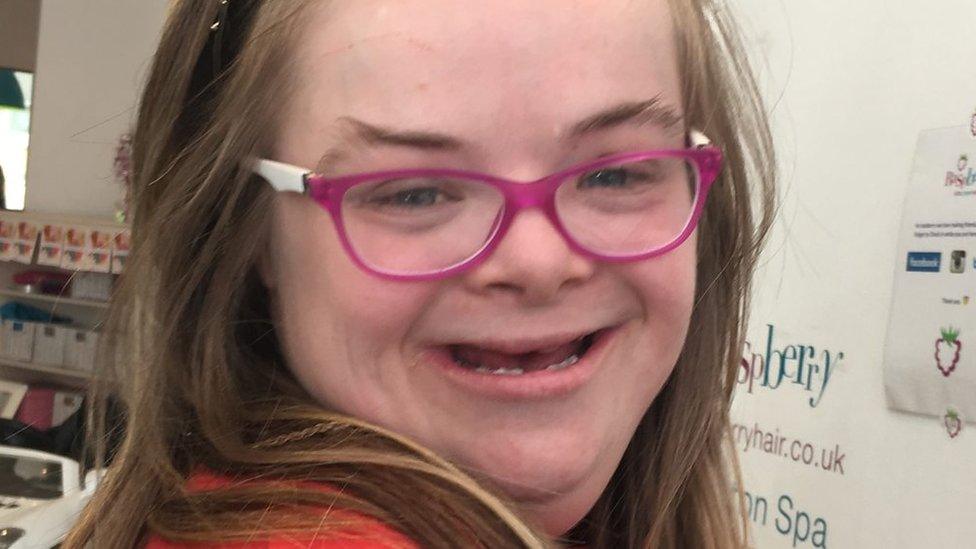
- Published27 April 2018
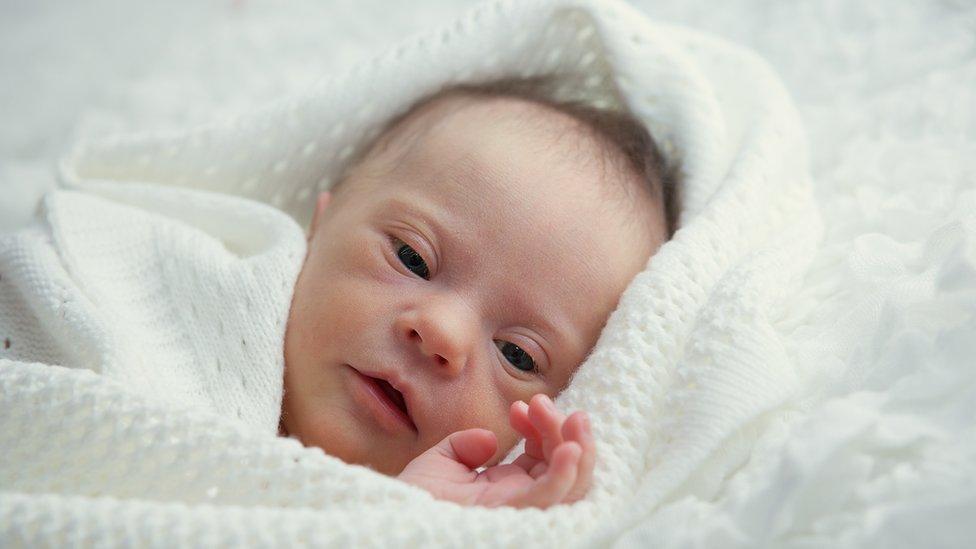
- Published27 April 2018
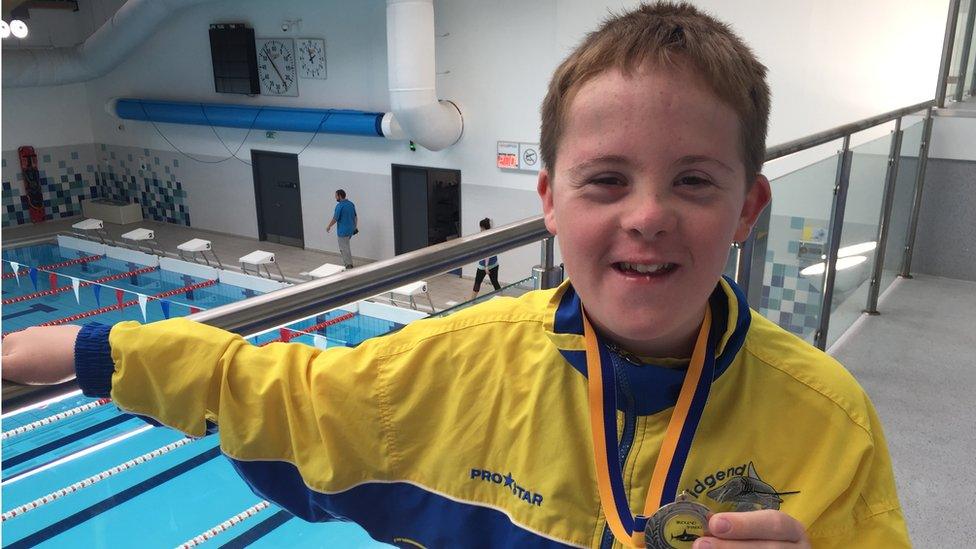
- Published27 April 2018

- Published1 March 2017

- Published29 September 2016
